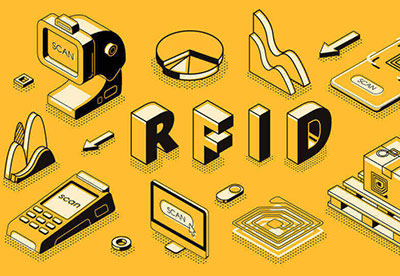In today's fast-paced world, ensuring the safety and efficiency of people in various environments is of paramount importance. RFID (Radio Frequency Identification) technology has emerged as a powerful solution for people tracking, offering real-time monitoring, increased security, and streamlined operations.
RFID people tracking utilizes small electronic tags or badges, commonly worn or carried by individuals, to track their movements within a designated area. These tags contain unique identification information that can be wirelessly read by RFID readers strategically placed throughout the facility. The readers capture the signals emitted by the tags, enabling real-time tracking of individuals' locations and movements.
One of the key advantages of RFID people tracking is its ability to enhance security and safety in various environments. In high-security areas such as airports, government facilities, or healthcare institutions, RFID tags can help prevent unauthorized access. If someone attempts to enter a restricted zone without the appropriate credentials, alerts can be triggered, and security personnel can respond promptly.
Moreover, in emergency situations such as evacuations or natural disasters, RFID people tracking can aid in accounting for individuals, ensuring that everyone is safely evacuated and accounted for. This technology allows for quick identification of missing persons, reducing response times and potentially saving lives.
RFID people tracking also offers significant benefits in terms of operational efficiency. In retail environments, for instance, RFID tags can be used to track the movement of staff members, optimize workflow, and improve customer service. By analyzing data collected from the RFID system, managers can identify bottlenecks, allocate resources more effectively, and streamline processes to enhance overall productivity.
In large-scale events or conferences, RFID people tracking simplifies attendee management. Attendees can be easily identified, allowing for streamlined registration processes, personalized experiences, and targeted communications. Additionally, event organizers can analyze attendance patterns and traffic flow, enabling them to make data-driven decisions for future events.
While RFID people tracking provides numerous benefits, it is crucial to address privacy concerns. Organizations implementing this technology must ensure that proper measures are in place to protect the privacy and confidentiality of individuals' data. Personal information should be encrypted and securely stored, with access limited to authorized personnel only. Transparent data usage policies should be established, informing individuals about the purpose and scope of data collection.
The applications of RFID people tracking are vast and span across various industries. In healthcare, RFID technology enables accurate patient tracking, reducing errors and improving overall patient care. In education, it ensures the safety of students on campus, allowing for quick identification and location monitoring. In manufacturing and logistics, RFID people tracking enhances inventory management, reduces loss, and improves supply chain visibility.

As technology continues to advance, RFID people tracking is expected to evolve as well. The integration of RFID with other technologies, such as IoT (Internet of Things) and AI (Artificial Intelligence), holds immense potential for creating more sophisticated tracking and monitoring systems. Imagine a future where RFID tags can provide real-time health monitoring, ensuring the well-being of individuals in various settings.
RFID people tracking technology is revolutionizing the way we ensure security and efficiency in various settings. From enhancing safety measures to optimizing operations, this technology offers invaluable insights into people's movements. When implemented responsibly and with privacy considerations in mind, RFID people tracking can significantly improve the overall experience for both individuals and organizations alike. The benefits of RFID people tracking, including enhanced security, streamlined operations, and improved safety, make it a vital tool in modern times.
As we look ahead, the future of RFID people tracking holds even more promise. With advancements in technology, we can expect to see further integration of RFID with other cutting-edge innovations. For instance, the combination of RFID and facial recognition technology can provide even more robust and accurate identification and tracking capabilities.
Additionally, the application of RFID people tracking in smart cities is an exciting prospect. Imagine a city where RFID tags are integrated into public transportation systems, allowing for seamless tracking of commuters and optimizing transit operations. This could lead to reduced congestion, improved public safety, and enhanced overall efficiency in urban environments.
Moreover, the continuous advancements in miniaturization and cost reduction of RFID technology will make it more accessible and scalable across industries and organizations of all sizes. This will enable broader adoption and implementation of RFID people tracking systems, further revolutionizing safety and efficiency in diverse sectors such as hospitality, construction, and entertainment.